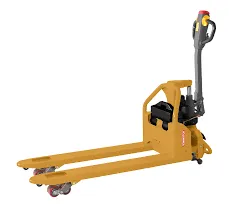


Understanding Chain Hoist Prices A Comprehensive Guide
When it comes to lifting heavy loads safely and efficiently, chain hoists are among the most widely used tools in various industries, including construction, manufacturing, and warehousing. However, potential buyers often find themselves grappling with questions about chain hoist prices. This article aims to provide an overview of the factors that influence the cost of chain hoists and what you should consider when making a purchase.
Types of Chain Hoists
Chain hoists come in both manual and electric variants. The manual chain hoist relies on human effort to raise and lower loads, making it a cost-effective option for lighter tasks or applications where power access is limited. Electric chain hoists, on the other hand, offer increased lifting capabilities and efficiency for heavier loads and are typically more expensive due to their advanced technology and motorized components.
Factors Influencing Prices
1. Load Capacity One of the primary determinants of chain hoist prices is the load capacity. Chain hoists come in various ratings, ranging from 1 ton to over 50 tons. Naturally, hoists with higher load capacities tend to be more expensive, given the materials and engineering required to ensure safety and performance.
2. Type of Mechanism As mentioned earlier, chain hoists are available in manual and electric versions. Electric chain hoists generally cost more than manual hoists due to their complexity. Additionally, features such as variable speed control and advanced safety systems can also elevate the price.
3. Brand and Quality Brand reputation plays a significant role in chain hoist pricing. Well-established brands known for their durability and reliability may command higher prices. Choosing a reputable manufacturer can often lead to better long-term value, as cheaper alternatives may lack the necessary safety and performance standards.

4. Safety Features Many modern chain hoists come equipped with advanced safety features, including overload protection, limit switches, and emergency stop buttons. These additional safety measures can increase the cost but are often worth the investment, especially in high-risk environments.
5. Material and Build Quality The materials used in the construction of a chain hoist can also affect its price. Hoists made from high-grade steel or corrosion-resistant materials are likely to be more expensive but offer increased durability and longevity, which can lead to cost savings in the long run.
6. Accessories and Customization Depending on your specific needs, you may require various accessories, such as slings, hooks, or additional controls. Customizations can add to the overall cost, so be sure to factor these into your budget when considering chain hoist prices.
Average Pricing
The price range for chain hoists varies significantly based on the factors mentioned above. Manual chain hoists can start as low as $100 and go up to $1,000 or more. Electric chain hoists generally range from $500 to $3,000, with high-capacity models exceeding this price, particularly when they come with advanced features.
Conclusion
When considering the purchase of a chain hoist, it is crucial to evaluate your specific lifting needs and budget constraints. While a lower price tag can be tempting, it’s essential to consider the long-term implications of safety, durability, and performance. By understanding the various factors that influence chain hoist prices, you can make an informed decision that aligns with your operational requirements and safety standards. Investing in a quality chain hoist may well lead to greater efficiency and peace of mind as you undertake your lifting tasks.



